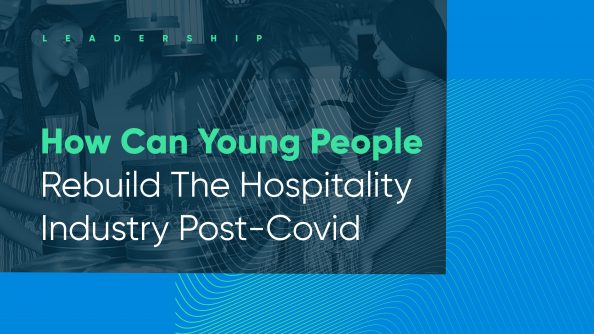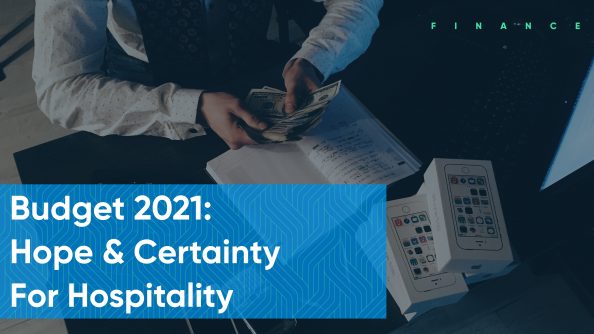Top Challenges and Opportunities From Our UK Hospitality Roundtable Series
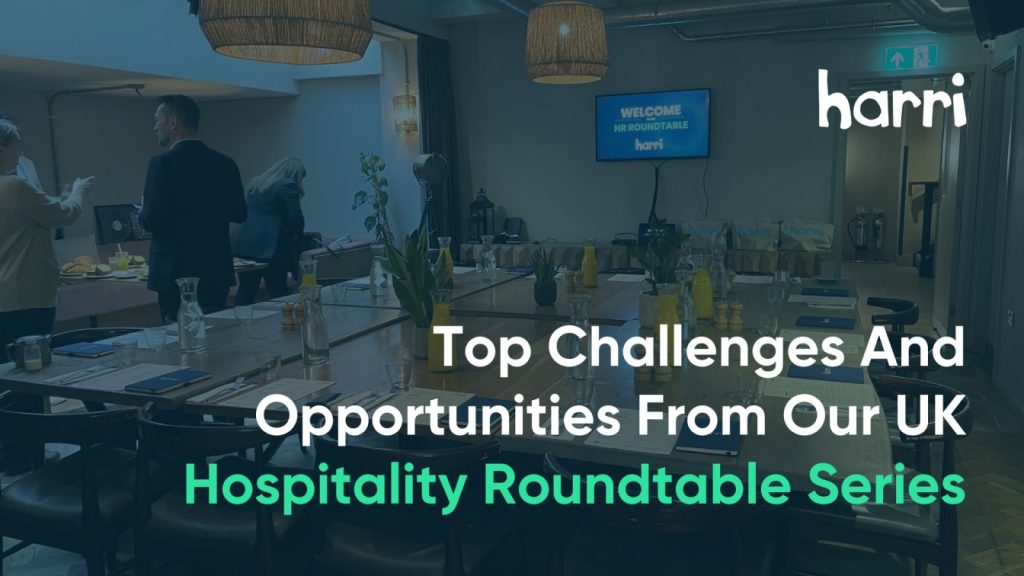
- By Harri Insider Team | August 4, 2023
Hospitality in the UK is a fast-changing industry that keeps new HR priorities top-of-mind for its leaders. That’s why Harri gathers HR leaders in hospitality monthly through our roundtable series.
Successful, guest-focused brands rely on talent attraction, engagement, and retention. With so many new challenges around turnover, short-staffed organisations, and compliance complexity, there’s more of a need to give those core talent strategies a fresh look. We recently gathered a group of HR leaders for a series of roundtables in the London to see where their focus will be for the second half of the year. These engaging roundtable discussions became a first-hand look at accessible yet impactful opportunities for our broader community of hospitality leaders to take action on.
Below is a list of the top takeaways to support you as you determine which actions align with what keeps businesses thriving and what UK employees genuinely care about.
Uniting Leading Minds in Hospitality
In addition to our ongoing conversations with HR leaders, we found a lot of inspiration from our Harri community gatherings within the London hospitality space. Our attendees’ and staff’s creativity and learning moments prompted a second roundtable discussion in May. These conversations left us with rich insights that we’ve curated below as quick takeaways for our whole community to benefit from.
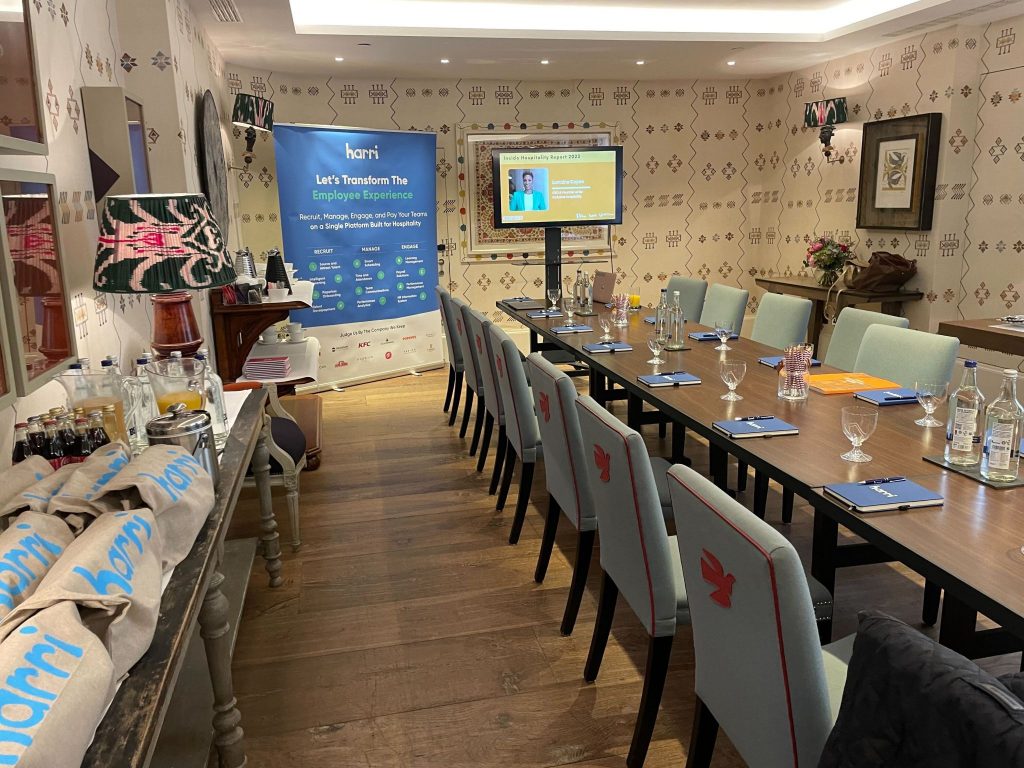
Key Challenges Facing Hospitality Leaders
1. Turnover remains unpredictable
Deloitte predicts that staff shortages, underpinned by high inflation, will likely increase beyond 2025. The concern over employee turnover was centre stage for leaders, too. They continue to feel the impact of the great resignation and fickle behaviour of hospitality candidates. The loss of an employee is always a challenge. The cost is even greater when the time and training resources you spend walk out the door with them.
We heard a common desire to take control of turnover in the first 90 days of employment. Some focus areas include employee satisfaction, engagement, and feedback, which are reflected in key priorities and opportunities. Beyond that, many attendees shared the importance of an efficient framework to monitor and report turnover within their organisations.
2. It’s harder to balance hiring speed and quality
Increased turnover leads to another challenge in the hiring realm, and 7 in 10 talent leaders say hiring went from a recruiting priority to an operational one in the last year. Attendees discussed the need to quickly fill roles and ensure those hires are high-quality and open to growth. Recruitment processes move fast when hospitality candidates have more employment opportunities.
There’s more pressure felt to offer jobs on the spot to capture the right person for the job. That may mean less time to know they are the best long-term fit. To beat the competition, a rushed process may lead to an uncertain hiring decision that impacts the whole organisation.
3. Employee expectations rise with talent in the driver’s seat
Hiring is one of many areas new expectations show up. More job options mean a more significant focus on how employers stand out. In March 2023, workforce jobs rose by a record 395,000 in the UK. It’s hard to understand what employees see as valuable, but attendees saw well-being and progression opportunities at the top of their lists.
The typical benefits packages aren’t enough to show talented candidates that an organisation sees them and their needs. Workers want flexibility, well-being options, and open conversation space. For leaders, this will require a fresh look at how a career brand hooks these individuals and the employee engagement strategies that help them experience it.
Key Priorities for Hospitality Leaders
1. The next generation of talent is here
A big topic of discussion is the next generation of talent to shape the hospitality industry. With most frontline staff in their 20s, leaders are focused on meeting their new definition of job fulfilment.
Younger workers have access to more gig economy and self-employment opportunities than ever before. However, there are still appeals that only a stable position within an established organisation can offer. These include volunteer work, sustainability efforts, and strong company values. HR teams can highlight more of these attributes to create a desirable employer value proposition that young workers gravitate toward.
2. Data-based retention
While hiring focuses on bringing in the right people, retention is even more critical to today’s leaders. Instead of focusing in on a constant cycle of high-volume hiring to combat turnover, it’s more stabilising to build the foundation of current employees who want to stay. That requires a shift in thinking about why people leave in the first place, if they feel their voices are being heard, and their sentiment about the organisation.
To take action, there’s more data needed than what an exit interview provides. Leaders see the value of regular feedback loops with employees that open doors to learn why they stay. That way, HR teams can act on specific areas like schedules, benefits, communication, and management before someone feels compelled to quit. Whether it’s through surveys, check-ins, or an open culture for conversation, you can learn a lot before it’s too late.
3. Meeting the moment with technology
Between the new expectations of next-generation talent and the level of information needed to make intelligent retention decisions, technology is a top focus for leaders. Attendees shared ways technology supports them with employee communications, feedback facilitation, team updates, benefits, and schedule creation.
The importance of integrated, modern, and professional tech systems was at the top of the agenda for HR teams. Employees are 50% more likely to agree that their company gives them access to the right tools and technology at work if they have access to those resources on a mobile device, for example. The changes that younger workforces desire and a deeper understanding of what drives them to succeed come from clean data and a user-friendly place to access it – from recruitment to employment.
Key Opportunities for Hospitality Leaders
1. Showcase relevant and holistic benefits
Leaders in the hospitality space have an opportunity to get creative about their benefits packages. Even though many have reduced budgets for benefits, employees are more drawn to support, understanding and fair pay. For example, frontline workers expressed a desire to choose when they work an showed interest in training and growth opportunities in a recent study. Our conversations focused on the well-being initiatives that employees look for and how each brand can make them their own.
Many leaders noted the direct correlation between employees’ well-being and productivity. You can explore ways to replace tickbox benefits with a display of ways each worker will feel seen and heard. The more you can show how they will gain the flexibility they’re chasing in a role with your organisation, the more you’ll stand apart from the standard offerings they may see from other offers. This is also a way to bring learnings from employee sentiment check-ins to life to support retention.
2. Create an environment to grow talent from within
Leaders see the opportunity to grow their talent from the day they begin to match the growing need for multi-skilled workers. It’s impactful to expose talent to broader skill sets and learning experiences. More significant than that, however, is the way growth serves as a reminder that each employee has long-term value in the organisation, regardless of tenure or level. Progression and identifying talent with strong potential leads to retention and sustainable talent pools for the future of the business.
Think about where you can create more holistic development pathways for growth. To support that, you can consider how compassionate, empathetic, and open managers are to development conversations and how to coach them to develop those essential skills. The absence of a supportive manager increases the likelihood of frontline employees quitting their job by 4x. A culture that builds confidence within people to know where they excel and where they can receive training to fill gaps goes a long way.
3. See the human side of talent
Talented workers want to feel they can be themselves in every capacity at work and that’s where leaders see an opportunity to take small steps that mean the world to those individuals.
Leaders see the importance of their relationship with talent and how that is the foundation for candidate and employee satisfaction. The benefits expand from the very first impression with a worker to the opportunity to advance them through the organisation. Think about where you can go the extra mile to let employees know their voices are heard and valued. Here are a few ideas to get your thoughts flowing:
- Add informal check-ins during the hiring process
- Offer a coaching opportunity based on an expressed passion
- Inquire about how they feel as they go through a training
- Build organic team bonding moments to welcome deeper connection
- Create an open communication loop to turn to with any challenges
Workers who genuinely feel they belong are 2.5x less likely to quit their job and 5x more likely to recommend their employer as a place to work.
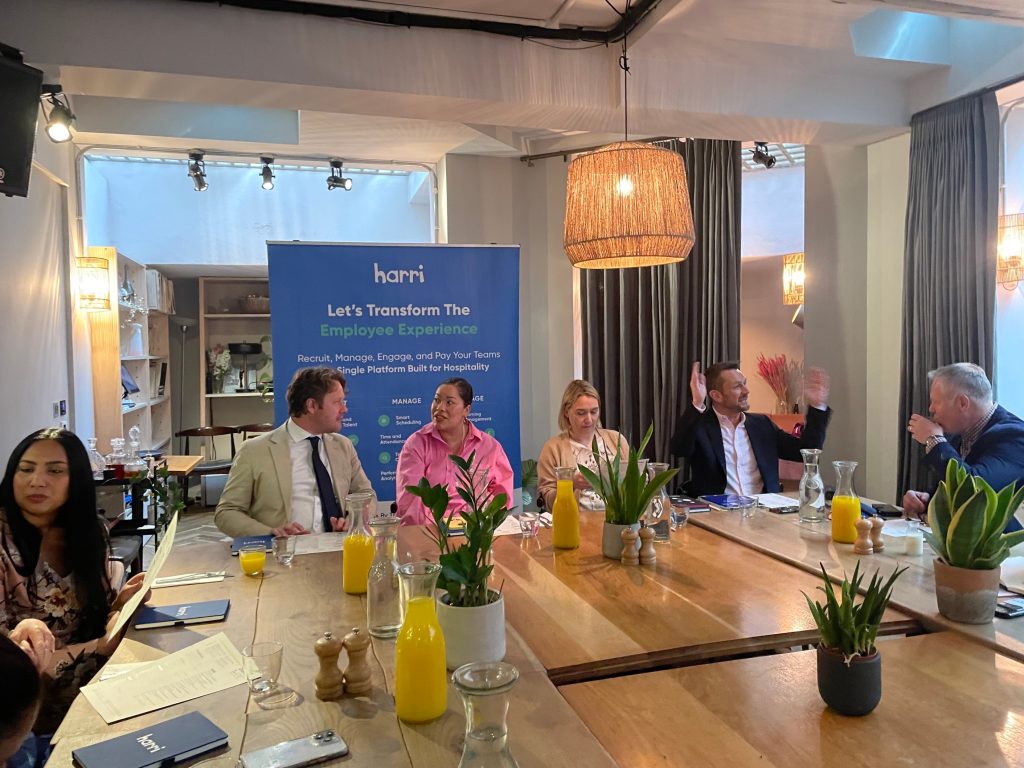
Join the Conversations
Across our array of leaders who attend our roundtable events, we see the value in small, incremental changes that have a massive impact on employees and business success in the hospitality industry.
HR leaders can learn so much from one another with the space to speak openly about what’s on their minds. We invite you to join us for our next roundtable discussions to share your thoughts and reactions to what’s happening in your world. It’s in our community that we find more robust strategies, new ways of thinking, and people who understand one another like no one else can.











